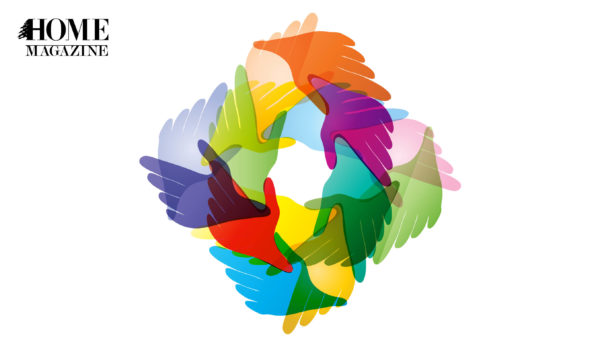In a recent study regarding internet penetration in Lebanon, internet users have grown from 24 percent of the population to 74 percent in the last eight years.
Although the internet has reshaped our lives and many industries around the world, such as fashion, banking, education, food, transportation and more, I believe healthcare still has a long—and complex—journey ahead.
No matter where you are in the world, with access to the internet you can research and review articles that will make you feel adequately equipped with knowledge about a plethora of health conditions. You may even believe that you could share such “knowledge” with others as medical advice. Many of us will even attempt to self-diagnose via medical websites by looking at the symptoms of certain conditions and using these findings as grounds for diagnosis. This can go even further; in some cases, you may even self-prescribe and attempt a treatment plan on your own. Is this access to information (scientific or not) the core purpose of digital health? Is it about computerizing patient data charts in hospitals and clinics?
“A notification on your smartphone indicates that if you stick to your current lifestyle, the probability you will develop diabetes will be 70 percent by next year.”
I believe digital health goes beyond the internet search bar. Imagine the following scenario: You are sitting at HOME and receive a notification on your smartphone that if you stick to your current lifestyle, the probability you will develop diabetes will be 70 percent by next year. To decrease the likelihood of this outcome, you are advised recommendations to follow, given your individual case, which might include genetic predisposition, your lifestyle choices and other specific factors. In parallel, your data is collected—within ethical regulations—and utilized by the pharma industry for future market size analysis, prevalence data, sales forecasts,potential recruitment in clinical trials and endless other creative possibilities.
Another—although more dramatic— scenario is to have your own heart attack warning system, which will warn you based on your unique characteristic chances of possible dates of an incident occurring. Imagine receiving a notice that reads: “You’re going to have a heart attack in two weeks.” Wouldn’t you want to take care of yourself? This may sound farfetched and unrealistic, but it is the direction in which digital health is headed.
In the era of digital revolution, the race is on for big pharma companies to acquire, merge, collaborate, invest and create digital platforms to be first-movers in providing stakeholders an improved service via individualized patient treatment outcomes, treatment adherence, disease awareness, prediction, prevention, diagnosis and platforms that will create valuable data for ongoing innovation in healthcare.
How will these advances in digital healthcare translate to the pharma industry in Lebanon and what will be some of the challenges that we might face? How will these strategies be accepted or implemented in Lebanon by the multiple stakeholders such as the health care professionals and the Ministry of Health?
Let’s look at today’s pharma market in Lebanon. Regulatory and pricing approval processes are one of the fastest in the region, hence the availability of the most innovative medications. Moreover, we have a good number of practicing physicians that are of competitive academic caliber, yet in some (perhaps most) disease areas, such as diabetes, the gap between the number of diagnosed patients and the number of treated patients is large. Is this due to a lack of adherence? Treatment affordability issues? Or just nonchalance and lack of routine medical visits and follow-up?
Regardless of the reason, this gap creates an opportunity for the pharma industry in Lebanon. Digital technology can be leveraged to shift the patients from being diagnosed and untreated to being controlled on treatment. Nevertheless, challenges will surely arise. The first potential obstacle could be the objection of the health care professionals (supported by the Ministry of Health or the Order of Physicians) as many of them rely on their private clinic’s patient visits as a primary and important source of income.
Speaking from personal experience, some physicians in Lebanon are still reluctant to refer their patients to specific support programs developed in collaboration between pharma companies and third parties that aim to improve treatment adherence, outcomes and disease awareness and education. The main challenge is to align the goals of digital heath with those of all its stakeholders. In this example, the main obstacle will be mitigating the physicians’ fears of losing contact with their patients or having the interference of a third party. Although digital platforms could ideally reshape the doctor-patient communication structure, save time and improve treatment outcomes, physicians may resist the idea. Hence, another obstacle surfaces: better health care at the cost of cutting jobs?
The important players in Lebanon’s health revolution are the local authorities and their regulations. For example, unlike in the United States, direct-to-consumer advertising by pharmaceutical companies is forbidden in Lebanon. Furthermore, every single piece of collateral that is directed to the public must be completely unbranded (visually and in content), and then reviewed and approved by the Ministry of Health. How would local authorities react to these changes? Will they stand in the way of digital platforms? Will they side with them or censor them? A compromise, perhaps?
At the 2019 Digital Health Summit, Geoffrey Starr, a partner at Cooley law firm which represents clients operating in technology-focused industries such as digital health, mentioned that one of his predictions for the coming year is the pharma sector’s heavy focus on digital.
Change is imminent. Digital health will be the new revolution in the pharma industry. The Lebanese market needs to gear up for what lies ahead.
For more info: https://www.internetworldstats.com/me/lb.htm

































